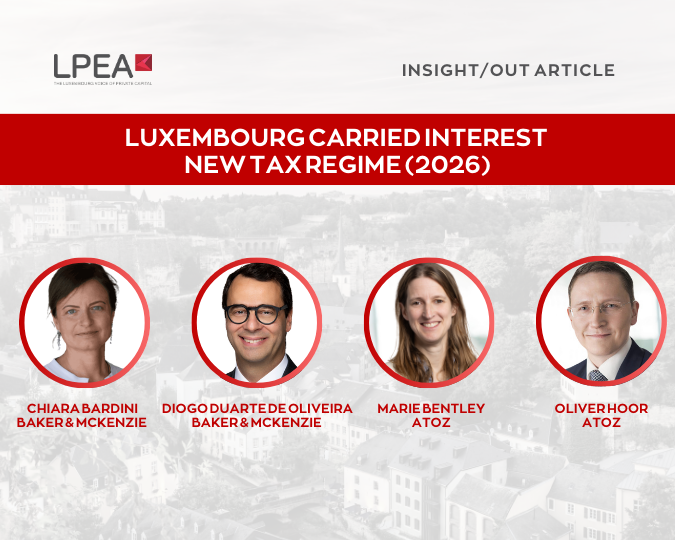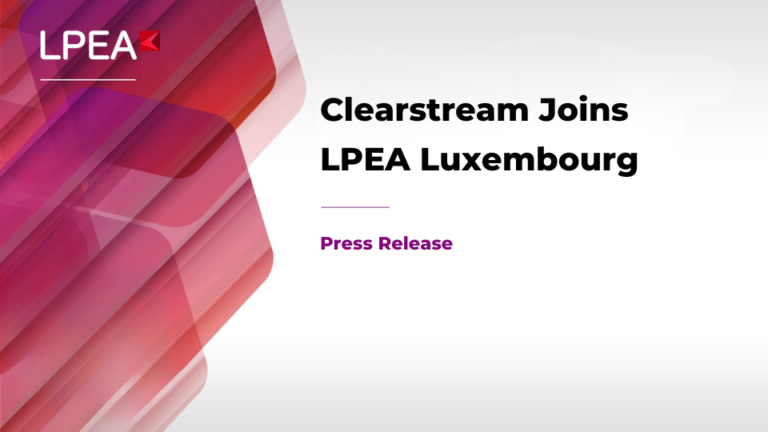Luxembourg welcomes its first European Venture Capital Fund (EuVECA) manager and EuVECA Fund
The first ever Luxembourg based EuVECA manager has been registered with the CSSF with effect as of 18 June 2015. This brings the EuVECA registrations to 27 at EU level.
(by Catherine Pogorzelski, LPEA members)
The Regulation N°345/2013 on European Venture Capital Funds (EuVECA) became directly applicable in all the EU Member States on 22 July 2013. The Regulation provides for a common EU framework for (alternative investment fund) managers of qualifying EuVECA funds that are registered with their competent authorities (i.e., the CSSF in Luxembourg), so that they can benefit from the EU passport in order to manage and market these funds in the EU with the specific EuVECA label.
The EuVECA Regulation entered into force on the same day as the Alternative Investment Managers (AIFM) Directive. While the AIFM Directive triggered immediate actions and reactions across the EU and especially in Luxembourg (with over 200 authorized AIFMs), the EuVECA Regulation seemed to attract little interest (in Luxembourg).
“…the ability to market to investors who commit to invest at least EUR 100,000.”
This seemed all the more surprising for the leading European funds and private equity funds center, since the EuVECA Regulation is meant to lower the high entry threshold applicable to fully authorized AIFM in adjusting the regulatory requirements for qualifying venture capital fund managers, giving these managers full EU marketing access without being subject to the higher (i.e., more burdensome) standards of the AIFM Directive. This means that there are fewer venture capital managers than policymakers would have hoped for and that most venture capital managers do not (yet) operate in a cross-border environment. The latter also conveys that EU venture capital (fund) managers and assimilated business angels generally have lower amounts of assets under management as for example their American counterparts and thus operate locally or regionally only. Most of them manage assets well below the AIFM Directive’s critical EUR 500 million threshold.
It is important to highlight that the AIFM Directive and the EuVECA Regulation follow very similar objectives and share the same core definitions. In order to benefit from the EuVECA label, the fund will have to qualify as an alternative investment fund (AIF), as defined in the AIFM Directive. Also, each manager of an EuVECA labelled fund will in fact qualify on the one hand as a sub-threshold (registered) AIFM and on the other as a registered EuVECA manager. What this means is that when the assets under management exceed the EUR 500 million threshold, the EuVECA manager and the EuVECA funds it manages will have to comply with the higher standards of the AIFM Directive, applicable to fully authorized AIFM. They will however be able to keep the benefit of the EuVECA label as well as some of the EuVECA marketing passport features, i.e., the ability to market to investors who commit to invest at least EUR 100,000.
“…the roles of private equity are set to become ever more important …”
This regulation focuses on the ease for doing business for EuVECA managers and was implemented within the framework of the role to be played by private equity and venture capital in the run for the Europe 2020 strategy. Europe 2020 is the EU’s growth strategy, which was adopted in 2010 for the current decade.
Concretely, the EU has set five ambitious objectives – on employment, innovation, education, social inclusion and climate/energy – to be reached by 2020.
Venture capital funds have the potential to stimulate economic growth, contribute to the creation of jobs and capital mobilisation, foster the establishment and expansion of innovative undertakings, increase their investment in research and development and foster entrepreneurship, innovation and competitiveness.
The purpose of the EuVECA Regulation is to enhance the growth and innovation of small and medium-sized enterprises (SMEs) in the EU. Investments in qualifying portfolio undertakings established in third countries can bring more capital to qualifying venture capital funds and thereby benefit SMEs in the EU.
With objectives as important as these, the roles of private equity and venture capital are set to become ever more important and cross-border going forward. The EuVECA label may potentially represent one of the most important tools in achieving the goals set for 2020. Needless to say that this first registration should soon be followed by many more, thereby underlining the role of Luxembourg as Europe’s most important private equity funds and investment hub.




